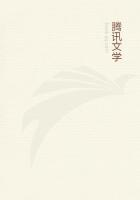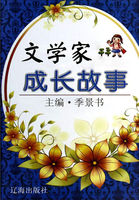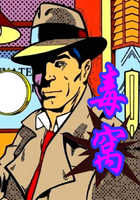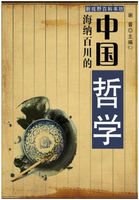THE WOLF AT THE DOOR
When I returned to Albion College in the autumn of 1875 I brought with me a problem which tormented me during my waking hours and chattered on my pillow at night. Should I devote two more years of my vanishing youth to the com- p letion of my college course, or, instead, go at once to Boston University, enter upon my theological studies, take my degree, and be about my Father's business?
I was now twenty-seven years old, and I had been a licensed preacher for three years. My reputation in the Northwest was growing, and by sermons and lectures I could certainly earn enough to pay the expenses of the full college course. On the other hand, Boston was a new world. There I would be alone and practically penniless, and the oppor- t unities for work might be limited. Quite possibly in my final two years at Albion I could even save enough money to make the experience in Boston less difficult, and the clear common sense I had inherited from my mother reminded me that in this course lay wisdom. Possibly it was some in- h eritance from my visionary father which made me, at the end of three months, waive these sage reflections, pack my few possessions, and start for Boston, where I entered the theological school of the university in February, 1876.
It was an instance of stepping off a solid plank and into space; and though there is exhilaration in the sensation, as I discovered then and at later crises in life when I did the same thing, there was also an amount of subsequent discomfort for which even my lively imagination had not prepared me.
I went through some grim months in Boston-- m onths during which I learned what it was to go to bed cold and hungry, to wake up cold and hungry, and to have no knowledge of how long these con- d itions might continue. But not more than once or twice during the struggle there, and then only for an hour or two in the physical and mental depression attending malnutrition, did I regret coming. At that period of my life I believed that the Lord had my small personal affairs very much on His mind.
If I starved and froze it was His test of my worthi- n ess for the ministry, and if He had really chosen me for one of His servants, He would see me through.
The faith that sustained me then has still a place in my life, and existence without it would be an infinitely more dreary affair than it is. But I admit that I now call upon the Lord less often and less imperatively than I did before the stern years taught me my unimportance in the great scheme of things.
My class at the theological school was composed of forty-two young men and my unworthy self, and before I had been a member of it an hour I realized that women theologians paid heavily for the privilege of being women. The young men of my class who were licensed preachers were given free accommo- d ations in the dormitory, and their board, at a club formed for their assistance, cost each of them only one dollar and twenty-five cents a week. For me no such kindly provision was made. I was not allowed a place in the dormitory, but instead was given two dollars a week to pay the rent of a room outside. Neither was I admitted to the economical comforts of the club, but fed myself according to my income, a plan which worked admirably when there was an income, but left an obvious void when there was not.
With characteristic optimism, however, I hired a little attic room on Tremont Street and established myself therein. In lieu of a window the room offered a pale skylight to the February storms, and there was neither heat in it nor running water; b ut its possession gave me a pleasant sense of proprietorship, and the whole experience seemed a high adventure. I at once sought opportunities to preach and lecture, but these were even rarer than firelight and food. In Albion I had been practically the only licensed preacher available for substitute and special work. In Boston University's three theological classes there were a hundred men, each snatching eagerly at the slightest possibility of employment; and when, despite this competition, I received and responded to an invitation to preach, I never knew whether I was to be paid for my services in cash or in compliments. If, by a happy chance, the compensation came in cash, the amount was rarely more than five dollars, and never more than ten. There was no help in sight from my family, whose early opposition to my career as a minister had hotly flamed forth again when I started East.
I lived, therefore, on milk and crackers, and for weeks at a time my hunger was never wholly satis- f ied. In my home in the wilderness I had often heard the wolves prowling around our door at night.
Now, in Boston, I heard them even at high noon.
There is a special and almost indescribable de- p ression attending such conditions. No one who has not experienced the combination of continued cold, hunger, and loneliness in a great, strange, indifferent city can realize how it undermines the victim's nerves and even tears at the moral fiber.
The self-humiliation I experienced was also intense.
I had worked my way in the Northwest; why could I not work my way in Boston? Was there, per- h aps, some lack in me and in my courage? Again and again these questions rose in my mind and poisoned my self-confidence. The one comfort I h ad in those black days was the knowledge that no one suspected the depth of the abyss in which I d welt. We were all struggling; to the indifferent glance--and all glances were indifferent--my struggle was no worse than that of my classmates whose rooms and frugal meals were given them.
After a few months of this existence I was almost ready to believe that the Lord's work for me lay outside of the ministry, and while this fear was gripping me a serious crisis came in my financial affairs. The day dawned when I had not a cent, nor any prospect of earning one. My stock of provisions consisted of a box of biscuit, and my courage was flowing from me like blood from an opened vein. Then came one of the quick turns of the wheel of chance which make for optimism.















